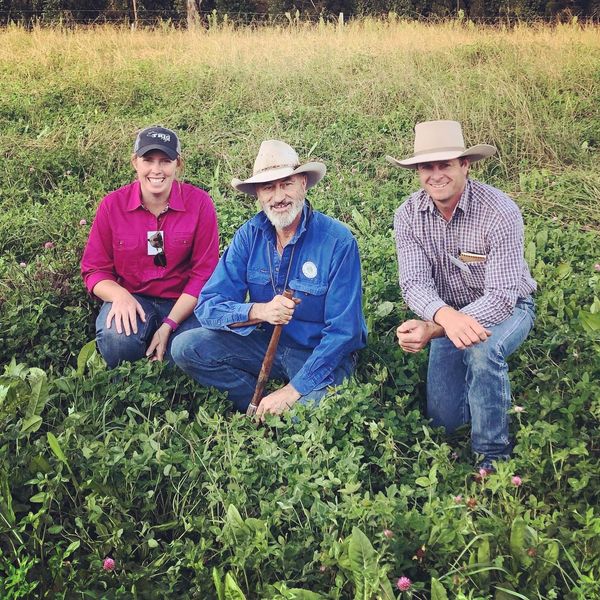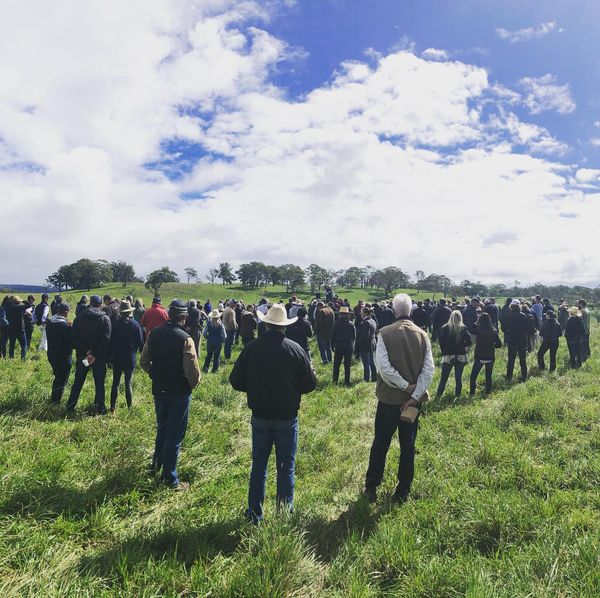Maia Grazing Field Day

Last week we made the trek to Wilmot Cattle Co, near Ebor, for a two day field day. The event was run by Maia Grazing & focused on using holistic grazing management to improve ecological & financial profitability.
Our key take home message from the event was a comment made by Terry McCosker:
Mother nature knows what’s best, we just need to get out of the way & be patient.
There were lots more valuable messages, so we thought we’d share our notes for anyone who wanted a snapshot…
Allan Parker: You Are What You Think
Keynote speaker, not ag-related but an expert in negotiation, change & leadership. His presentation was based on mindset & improving communication skills.
- We need to work on the ‘paddock between our ears’ the most
- The thought process in your head determines everything
- Your own words determine your energy level
- There’s huge potential to change the way we think
- Questions stimulate thinking – always ask questions, don’t just talk
- Farmers are good at stock handling but not people handling – there are some key principles that make communication a lot more effective
- Humans believe we’re the smartest thing on the plant yet we’re slowly gathering information to prove we’re acting the dumbest

Susan Orgill (DPI): Understanding Carbon
- Putting more CO2 into the soil through actively growing plants is a win for production & the environment
- Production benefits of more CO2 in the soil include of nutrient cycling, better water infiltration, improved plant quality
- Grazing management is king for influencing soil organic carbon, lots of opportunity to improve
- Almost every nutrient needs to go through a microbe before its available to a plant
Jason Strong (MLA): The vision of CN30
- The goal has been set for the red meat and livestock industry to be carbon neutral by 2030 (CN30)
- The CN30 target sends a clear signal to government and consumers that we’re being proactive
- Can be achieved without sacrificing production
- Will create carbon trading opportunities for farmers
- Most of Australia is used for extensive livestock production, huge opportunity to have big impact on carbon levels
- We want consumers to seek out our beef products because they know they’re good for the environment
Grant Sims: Improving soil health with multi-species crops/pastures
- Cropping farmer from Echuca, VIC
- He’s improving profitability through better soil health
- Aim is to increase soil organic carbon – key to robust cropping operation that runs on fewer inputs.
- Sowing cover crops improves moisture retention, boosts carbon, helps soil biology & provides cheap nutrients
- If you want biology, you need air in the soil & room for the roots to explore
- Introducing cattle to his cropping system – massive ecological & production benefit
Jess & John Bidgood - Tingle Hill Farm, QLD
- We have no control over the amount of rain we get or when it falls, but we have total control over stock numbers & how they graze
- Stock for the rainfall you actually receive, not what you expect to receive
- If you have grass, you have options
Panel Discussion
- Carbon will be the next biggest game changer, once there is money on the table for it, it will create a catalyst for changing grazing management (Terry McCosker)
- Put information in consumers power, once they know the facts support for regen ag products will increase.
- Be brave & support the brave. Producers should have a go at doing things differently & also support those who are giving it a crack (Jason Strong)
- If you eat you play a role in making sure ag is sustainable. Real power is in the hands of the consumer.
- Inputs are rising, soil health is declining – we need to do something different
- We can then tick all the boxes – be profitable, be sustainable & support the next generation
- There will need to be mass conversations before there will be large scale change from conventional ag to a more regenerative approach
Discussion on Key Grazing Principles:
Bart Davidson (Maia Grazing), Dick Richardson (Grazing Naturally), Terry McCosker (RCS)
- Those that do well, plan their grazing
- The end game of grazing management is more choices (less stress)
- Need to get the people in the system sorted first, then worry about the grass & the animals
- Carrying capacity is what grows up (supply of feed), it can change quickly
- Stocking rate is demand (stock grazing down)
- The recovery period is too long in many cell grazing systems, missed opportunities
- Stock density is the horsepower in your system. Great tool but room for error.
- Encourage biodiversity by having different animals in a paddock at different times & for different purposes
Day 2 was a paddock walk with grazing experts Stu Austin, Terry McCosker, Dick Richardson, Bart Davidson & James Barnett. It was great to see the principles in action at Wilmot.
These notes don’t cover all the speakers but are the key points that hit home for us. Thanks to Stu, the Wilmot team & Maia Grazing for hosting such a great event! It was well worth the drive.
Would you like to hear more from us? Be sure to sign up to our email list for more interesting information & updates on our program.

